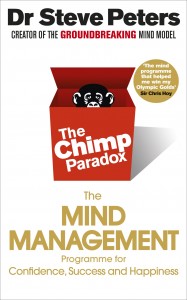This week marks the end of my first year at university, and I will admit I am sad that soon I will no longer be a first year! I couldn’t have asked for a better introduction into university life. I have chosen the above picture as it sums up the year nicely; I’ve met great people, in a great place, doing great things!
To say the time has gone quickly would be an understatement. It feels like it was only yesterday that I was moving in, however the number of incredible things that have happened in between are endless. I’m confident I have some memories that will stay with me forever, although admittedly some memories are a bit blurry 🙂 Nevertheless, first year at university is one I will never forget!
With the amount that’s happened I’ve decided to sit down and reflect on what first year has taught me – apart from how to cook, or how long it takes me to drink a pint. Whilst valuable skills, I have certainly not mastered either!
There are more hours in the day than you realise!
Ok, yes everyone has 24 hours in their day. But before I came to university I certainly hadn’t made the most of them all. This is probably first discovered by most students when they leave a project or essay until the last minute and a long night of working is needed.
The 9-4 ritual of schools before university got me into the habit of only wanting to work in these times. However I soon found that for me there isn’t much difference between 1pm and 9pm. If I don’t have any plans I can easily use that time productively. What I most like about this is the freedom it presents. If you’re happy to get you work done around 6-8pm when not much is happening, it opens up the whole day for other things!
Give it a go
The number of events, socials and talks happening each week are endless. It can be very easy to ignore the posters and facebook invites and carry on with your week as normal. However I started the year with an aim to attend as much as I could and engage. Whilst for some people they won’t leave their flat unless it’s for a lecture (for some, lectures aren’t even enough), I wanted to fill my days with extra events. This has only ever turned out well.
For me, most of these events ended up being business and enterprise based. This opened my eyes to a whole new path which I’ve followed without looking back. If I was to only give one piece of advice to someone just starting university it would be to go to events and give things a go, you might be surprised by how much you like it!
Everyone has something to offer
Once I had been introduced to entrepreneurship I wanted to get involved straight away, however I didn’t feel like I had anything to add to other people’s work, especially if they’re older and more experienced. Often I would think, ‘how can I help, I’m only a first year!’. Once I’d built up confidence to ask to be involved in events and projects and put my knowledge to the test, the responses I got usually went something like this, ‘I can’t believe you’re only a first year!’. That wasn’t because people thought I was too clever to be a first year, it was because most first years don’t get involved.
I soon found that I could contribute as equally as anyone else and that when it comes down to it, age doesn’t matter. Even if you do know less, it is your attitude that counts!
In short, your first year at university is a time to try anything and everything, meet amazing new people and discover more about who you are and who you want to be!






